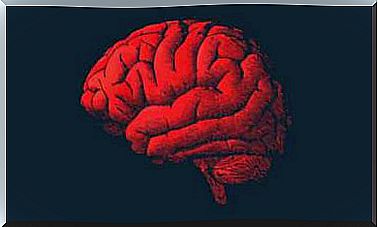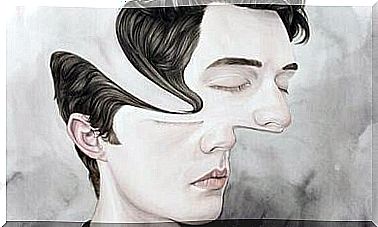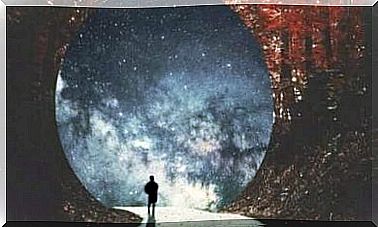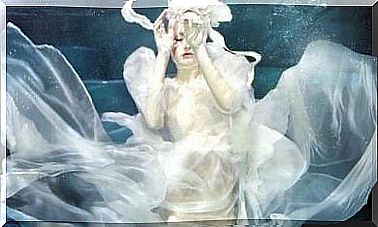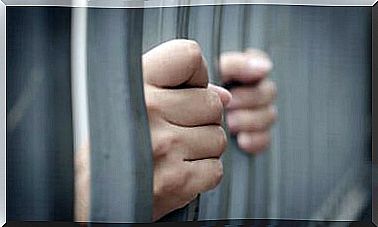Life Is Wonderful – A Film About Overcoming Difficulties
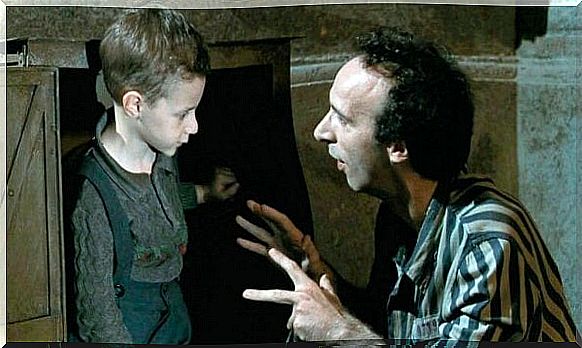
Life is Wonderful is probably the most internationally acclaimed Italian film of all time. The script, the music and the actors’ interpretations make it an unforgettable film that can make us laugh and cry by conveying an infinite number of emotions.
In short, it is a masterpiece full of messages, directed by Roberto Benigni in 1997. This film was inspired by the book Alle fine ho sconfitto Hitler (in the end I beat Hitler) by Rubino Romeo Salmoni – a survivor of the Auschwitz concentration camp.
The film is about Guido Orefice – an Italian Jew who moves to Arezzo to work in his uncle’s hotel. He encounters Dora – a teacher from a wealthy family who is close to the fascist regime. Guido does everything he can to win Dora. He always shows up unexpectedly and tries to surprise her.
In the end, he wins her favor and they have a son, Giosue. Life seems to be on Guido’s side. But World War II causes his whole life to collapse and he ends up in a concentration camp.
Life is wonderful takes us to an Italy steeped in fascism and leads us to the horrors of the concentration camps. However, it does so in a different way. It presents the story as a kind of fairy tale with a bittersweet ending.
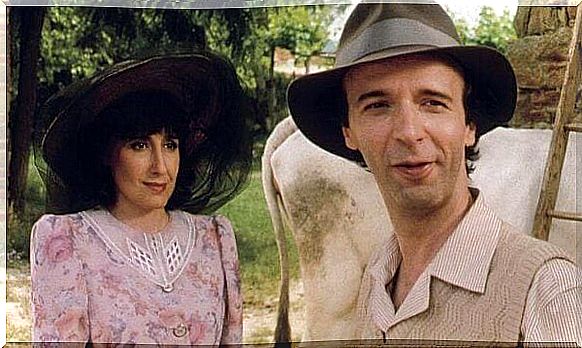
Life is wonderful starting with a happy, humorous and fun tone. Because of the first scenes, one can not imagine watching a drama, even if we see the rise of fascism in Italy from the beginning.
The comedy in Life is wonderful is found in the small details, in the small moments that lead to comedy. But what is really interesting is how an unpleasant and soda situation can make us smile.
The racial manifesto was published in 1938 because of the fascist ideology that ruled at the time. This text was signed by an Italian scientist who endorsed the existence of human races. These races were divided into inferior and superior, where the Aryans of course existed – a “pure, Italian race”.
These ideas were taught together with the fascist racial laws in schools, and therefore the children avoided spending time with Jews so as not to diminish their “purity”.
Is it possible for a Jew to make fun of these racial laws? Is it possible for a Jew to break down an entire fascist theory in front of a group of children? Yes, at least in Life is wonderful.
Giodo pretends to be a state inspector who has to speak to the children about the Race Manifesto. He actually just wants to get Dora’s attention, but this scene shows us that we are all the same.
Guido says that his navel is an authentic Italian navel, his ears the same, etc. The children imitate and laugh at this. Guido manages to resolve the alleged differences the manifesto refers to, as he is Jewish and has no physical characteristics that distinguish him from these “pure Aryan” Italian children.
This scene will probably make everyone smile. But it’s a bittersweet smile if we think about the true meaning behind the words of a gentleman from the state who speaks of human races.
Guido makes fun of these beliefs and breaks down all racist ideology with funny and clever comments. He is a character we fall for right from the start. He is carefree, very creative and his fight to win Dora fascinates us. Nothing stops him, not even fascism.
The life of Guido and his family is destroyed by the Holocaust. Guidi is sent with her son and uncle to a concentration camp. Dora, who is not a Jew, does not have to go, but decides to do so voluntarily to be with her family.
From this moment , the film takes a radical turn – the happy and carefree tone turns into tragedy. But Guido does not lose his smile for a second, and always tries to fight for his and his family’s survival. He begins to invent a story to reduce Giusue’s suffering.
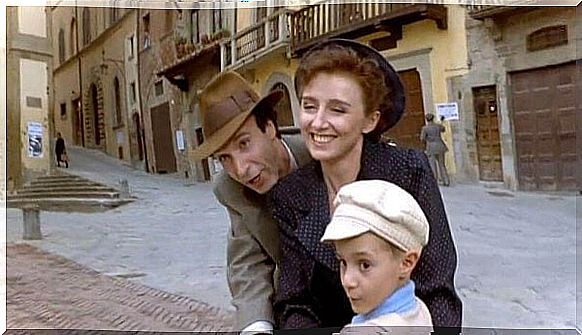
A phrase, a belief or an idea can change a person’s world. It can change the way we look at life and make everything logical. Ferruccio, a friend of Guido’s, says at the beginning of the film that according to Schopenhauer “… with willpower you can do anything.”
This phrase will mark Guido forever. At first he uses it comically, but over time it becomes his way of life.
Guido has a purpose, he wants to survive, but above all he wants his son to survive. He tries to prevent his son from ever losing his smile. He wants to keep him happy, even in hell. He sacrifices his own security so that his son will not see the horrors of the concentration camp.
He will do everything he can to find Dora and send messages that they are still alive.
Guido is an example of struggle and overcoming adversity. With the help of his imagination and will, he creates a false reality so that his children are not aware of what they are going through. He makes the child believe that everything is a game, that they are free and can go whenever they want.
But if they fight and succeed in winning a thousand points, they will get a reward. Giosue has always dreamed of having a real tank, so Guido makes him think that’s the price. In this way, he creates a will to live with Giosue.
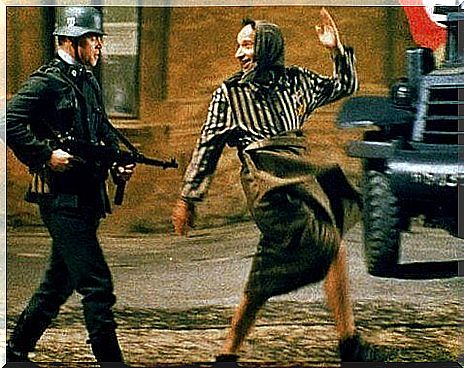
Guido does not know if he will survive. He does not know how long they will stay in the concentration camp. But his desire to live is stronger than all the uncertainties. Do not let your child see you broken down, sad or unwilling to live. Life is wonderful shows us that happiness sometimes lies in the way we look at life, in accepting and tackling adversity.
Despite the great genocide that took place in the concentration camps, there were also survivors who were faced with torture, hunger and injustice. An example of this is the psychiatrist Viktor Frankl, who after surviving a concentration camp published Life must have meaning.
He talks about his experiences in the book and adds a famous quote from Nietzsche that accurately sums up the plot in Life is wonderful: “He who has a why to live for can endure almost any how.”
Life is wonderful is an example of overcoming. It makes us see beauty in horror and freedom where there is no one, make us laugh and cry… Guido has a reason and will to live, and manages to recreate this feeling in his son.
In this way, we can say that his struggle and effort paid off, despite the rawness of the film.



